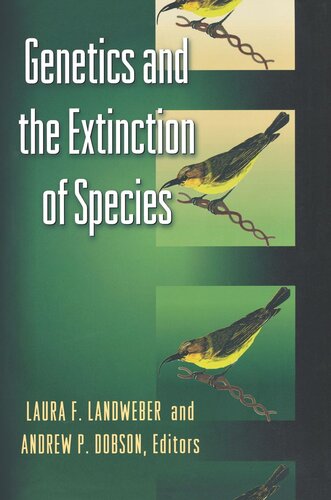

Most ebook files are in PDF format, so you can easily read them using various software such as Foxit Reader or directly on the Google Chrome browser.
Some ebook files are released by publishers in other formats such as .awz, .mobi, .epub, .fb2, etc. You may need to install specific software to read these formats on mobile/PC, such as Calibre.
Please read the tutorial at this link: https://ebookbell.com/faq
We offer FREE conversion to the popular formats you request; however, this may take some time. Therefore, right after payment, please email us, and we will try to provide the service as quickly as possible.
For some exceptional file formats or broken links (if any), please refrain from opening any disputes. Instead, email us first, and we will try to assist within a maximum of 6 hours.
EbookBell Team

5.0
68 reviewsDarwin's Origin of Species and Dobzhansky's Genetics and the Origin of Species have been the cornerstones of modern evolutionary and population genetic theory for the past hundred years, but in the twenty-first century, biologists will face graver problems of extinction. In this collection, a team of leading biologists demonstrates why the burgeoning field of conservation biology must continue to rely on the insights of population genetics if we are to preserve the diversity of living species. Technological and theoretical developments throughout the 1990s have allowed for important new insights into how populations have evolved in response to past selection pressures, while providing a broad new understanding of the genetic structure of natural populations. The authors explore these advances and argue for the applicability of new genetic methods in conservation biology.
The volume covers such topics as the reasons for extinctions, the best ways to measure biodiversity, and the benefits and drawbacks of policies like captive breeding. Genetics and the Extinction of Species is a rich source of information for biologists and policymakers who want to learn more about the host of tools, theories, and approaches available for conserving biodiversity.
In addition to the editors, the contributors to the volume are William Amos, Rebecca Cann, Kathryn Rodriguez-Clark, Leslie Douglas, Leonard Freed, Paul Harvey, Kent Holsinger, Russell Lande, and Helen Steers.